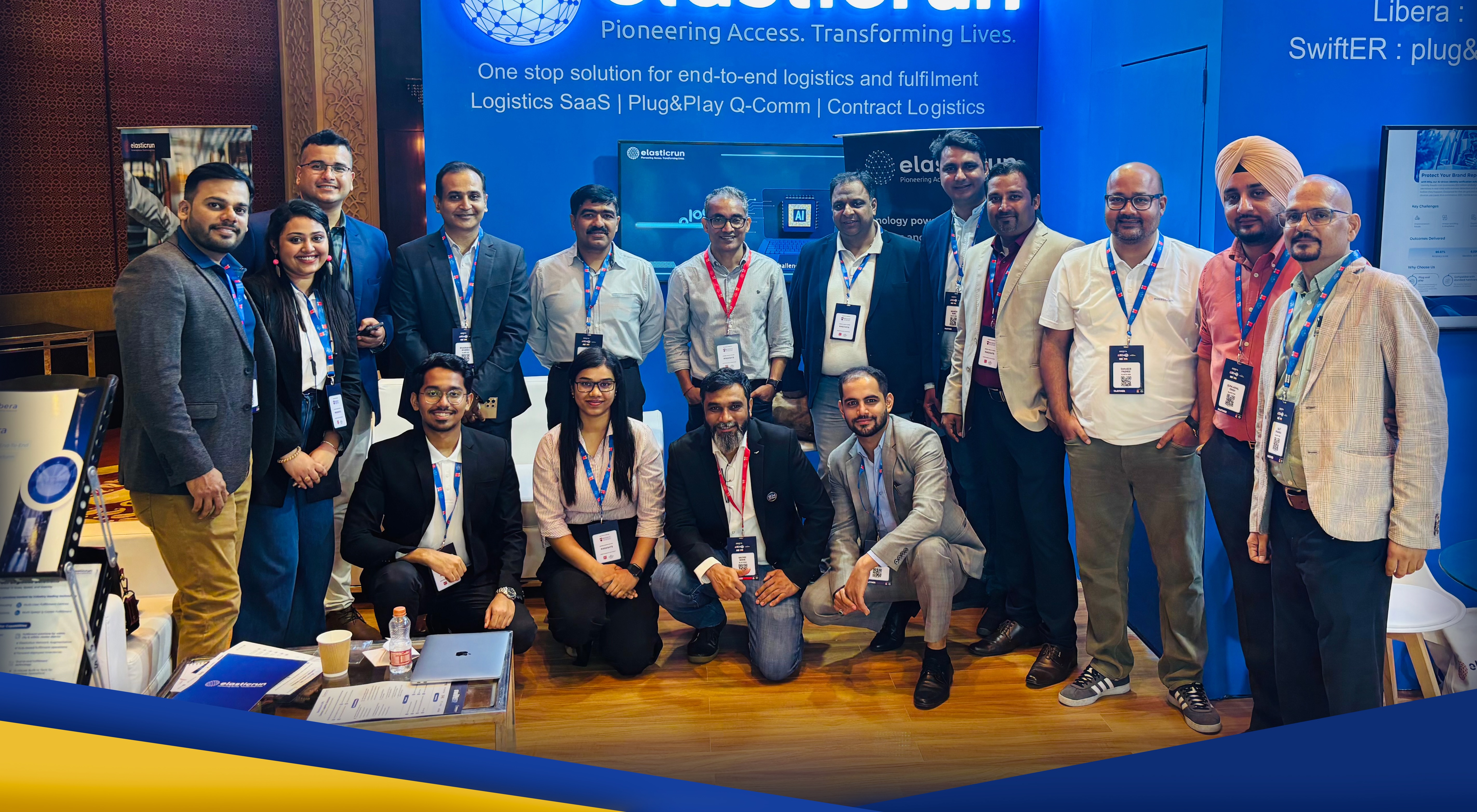India is a vast and diverse country, with over 800 million people living in rural areas. Yet, one of its biggest engines of economic growth – logistics – has long faced a serious challenge in reaching these regions. While urban consumers increasingly benefit from fast e-commerce delivery, many remote regions remain underserved by traditional supply chains.
Pune-based startup ElasticRun is changing this narrative. Co-founded by Sandeep Deshmukh, Shitiz Bansal and Saurabh Nigam, the company was built on the belief that access should not be tied to geography.It has developed a rural-first supply chain built on a crowdsourced logistics model. This strategy was not just about differentiation but resilience, scale and relevance in a deeply fragmented country. At the heart of this approach are India’s ubiquitous kirana shops – independent corner stores – transformed into nodes of a tech-enabled, hyperlocal delivery network. While most logistics providers have focused on high-volume urban markets, ElasticRun identified untapped potential in India’s vast rural economy, and designed a platform that reaches where traditional infrastructure often cannot.
ElasticRun is not only a technology success story but also a case study in social inclusion, economic empowerment and digital transformation rolled into one.
As traditional logistics models are challenged by rapid technological shifts, innovative solutions are needed to keep them relevant and resilient. Postal networks around the world are at a critical juncture, facing rising demand for last-mile delivery, digital integration and financial sustainability.
Sandeep Deshmukh, CEO and Co-Founder of ElasticRun, believes this is precisely where technology can play a transformative role.
“We would like to enable postal networks with our technology, which empowers them to run stable operations, open up new revenue streams, as well as bring social inclusion in their markets,” he said.
A crowdsourced model built for reach
ElasticRun’s journey began with a clear premise: if rural markets are hard to reach, the solution is not to shrink ambition but to stretch the supply chain. Rather than invest in capital-heavy infrastructure, the company built an asset-light, decentralized network powered by technology and local entrepreneurship.
Its platform orchestrates a distributed workforce of solo entrepreneurs, local vehicle owners, and small business operators to form a coordinated delivery and commerce network. When the platform was extended to serve fast-moving consumer goods brands, it enabled national suppliers to distribute into deep rural areas without the need to establish physical depots. At the same time, kirana shops gained more efficient access to a wider range of products. This decentralized model, powered by a modular and battle-tested tech stack, now performs at six sigma levels.
At its core is an AI-driven control tower that monitors operations in real time, flags anomalies before they escalate, and automates everything from route planning to fraud prevention. A task execution engine atomizes and assigns operations as micro-jobs, enabling agile, responsive logistics without fixed assets. Its workforce ecosystem tools manage gig workforce across the full lifecycle, right from onboarding to upskilling and payouts.
This approach has enabled ElasticRun to deliver at scale while maintaining affordability and reliability. Today, the platform handles more than 200 million parcels every month, with a delivery closure rate of 99.96% – without owning a single truck or warehouse.
Scaling commerce and inclusion
ElasticRun’s model does more than deliver goods; it connects rural India to formal supply chains, creating new avenues for commerce and inclusion. Through its partnerships with banks and non-banking financial companies, the platform uses transaction-level data to assess creditworthiness and embed microfinance directly into the supply chain.
In many communities, women-run kirana stores had been excluded from vital financial services and opportunities. Today, ElasticRun is helping change that. More than 100,000 hours of training have already been delivered through its digital platform, empowering women to manage their businesses independently.
For Sharda Santosh Shinde, a store owner in a remote village, the support came when she needed it most. After her husband’s accident left her without family or financial security, ElasticRun enabled her to restock her shop with ease and continue earning a livelihood. “They would deliver stock to us hassle-free and at a great discount”, she recalled.
A local solution, a global blueprint
ElasticRun’s success offers a powerful lesson for postal operators worldwide, particularly those seeking to extend reach, modernize operations, and remain relevant in the age of e-commerce. While many Posts still depend on fixed infrastructure and centralized delivery systems, ElasticRun has demonstrated the potential of digital-first, data-driven logistics.
By integrating predictive control systems, gig workforce models and decentralized planning, postal operators can reduce their cost-to-serve, improve delivery times, and unlock new sources of revenue even in low-density areas.
Postal operators already have physical reach and trust. By activating new network layers and expanding their service portfolios such as quick-commerce, retail, credit and distribution, Posts can unlock new growth opportunities. With access to battle-tested technology, they can multiply revenue streams while maintaining operational efficiency. This scalable technology will also enable Posts to transform accessibility with deep reach in underserved areas.
This approach can help Posts build flexible and scalable parcel networks, while strengthening their social impact.
A platform for partnership
Now a member of the UPU Consultative Committee, ElasticRun views its engagement with the postal community as a springboard for broader collaboration. The company’s strategic priorities include enabling Posts to diversify income, optimize last-mile delivery, and extend digital services using ElasticRun’s proven platform.
Its technology can enable postal operators to launch differentiated services without significant upfront capital expenditure, unlocking rapid innovation and unmatched operational efficiency.
Beyond improving logistics, ElasticRun aims to contribute to inclusive growth by creating local employment, expanding financial access, and supporting underserved communities.
In a world where digital transformation and inclusion must go hand in hand, ElasticRun is building the next generation of infrastructure – not just to move goods but to unlock possibility.
This article first appeared in Union Postale Summer 2025
